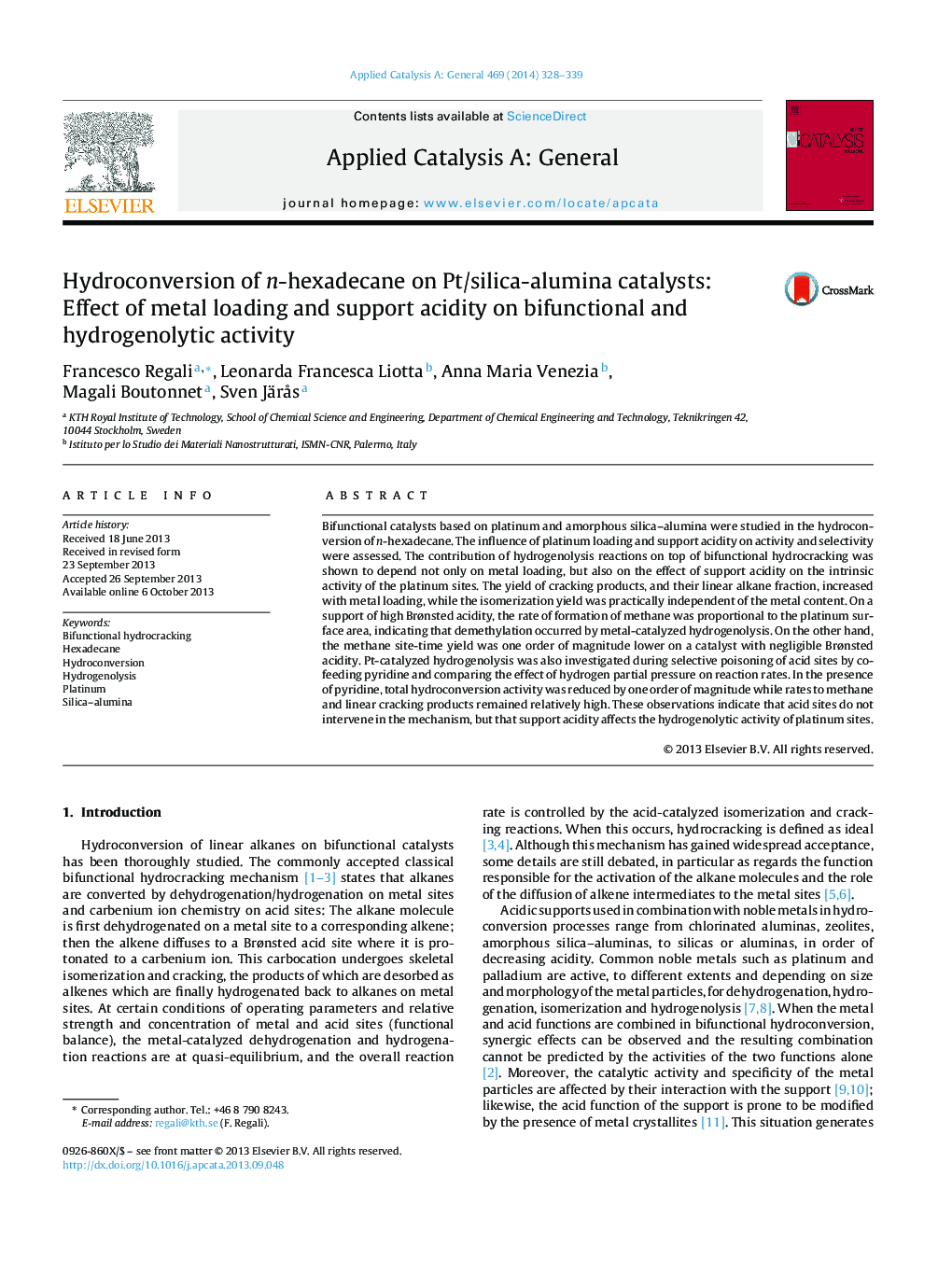| کد مقاله | کد نشریه | سال انتشار | مقاله انگلیسی | نسخه تمام متن |
|---|---|---|---|---|
| 40184 | 45845 | 2014 | 12 صفحه PDF | دانلود رایگان |

• Pt/silica-alumina catalysts were tested in the hydroconversion of n-hexadecane.
• Two pathways were observed: hydrogenolysis and bifunctional hydrocracking.
• Hydrogenolysis is monofunctional, catalyzed by Pt sites.
• Hydrogenolysis site–time-yield was lower on a catalyst without Brønsted acidity.
• Metal-support interactions affect the hydrogenolysis activity of Pt particles.
Bifunctional catalysts based on platinum and amorphous silica–alumina were studied in the hydroconversion of n-hexadecane. The influence of platinum loading and support acidity on activity and selectivity were assessed. The contribution of hydrogenolysis reactions on top of bifunctional hydrocracking was shown to depend not only on metal loading, but also on the effect of support acidity on the intrinsic activity of the platinum sites. The yield of cracking products, and their linear alkane fraction, increased with metal loading, while the isomerization yield was practically independent of the metal content. On a support of high Brønsted acidity, the rate of formation of methane was proportional to the platinum surface area, indicating that demethylation occurred by metal-catalyzed hydrogenolysis. On the other hand, the methane site-time yield was one order of magnitude lower on a catalyst with negligible Brønsted acidity. Pt-catalyzed hydrogenolysis was also investigated during selective poisoning of acid sites by co-feeding pyridine and comparing the effect of hydrogen partial pressure on reaction rates. In the presence of pyridine, total hydroconversion activity was reduced by one order of magnitude while rates to methane and linear cracking products remained relatively high. These observations indicate that acid sites do not intervene in the mechanism, but that support acidity affects the hydrogenolytic activity of platinum sites.
Figure optionsDownload high-quality image (102 K)Download as PowerPoint slide
Journal: Applied Catalysis A: General - Volume 469, 17 January 2014, Pages 328–339